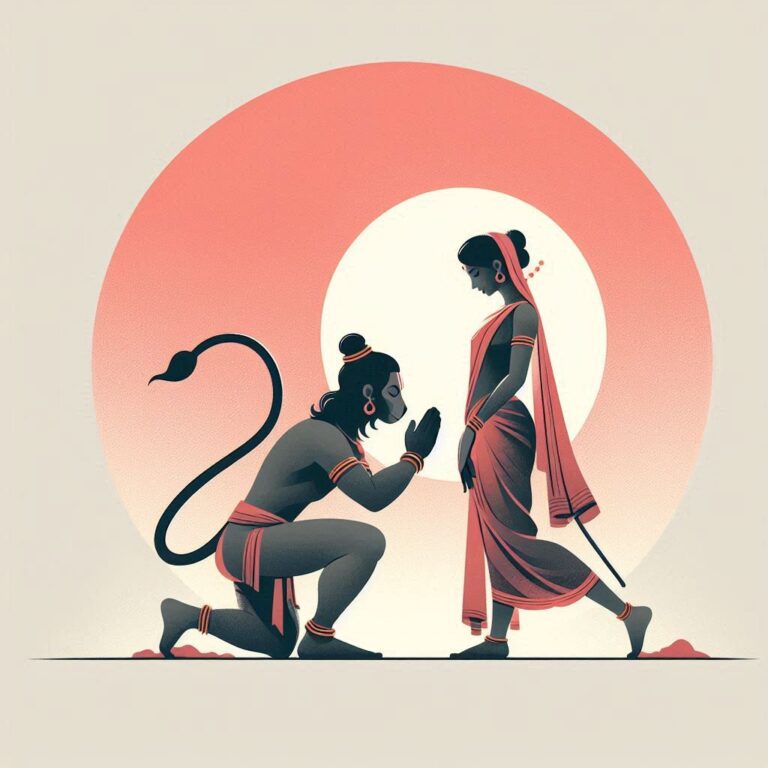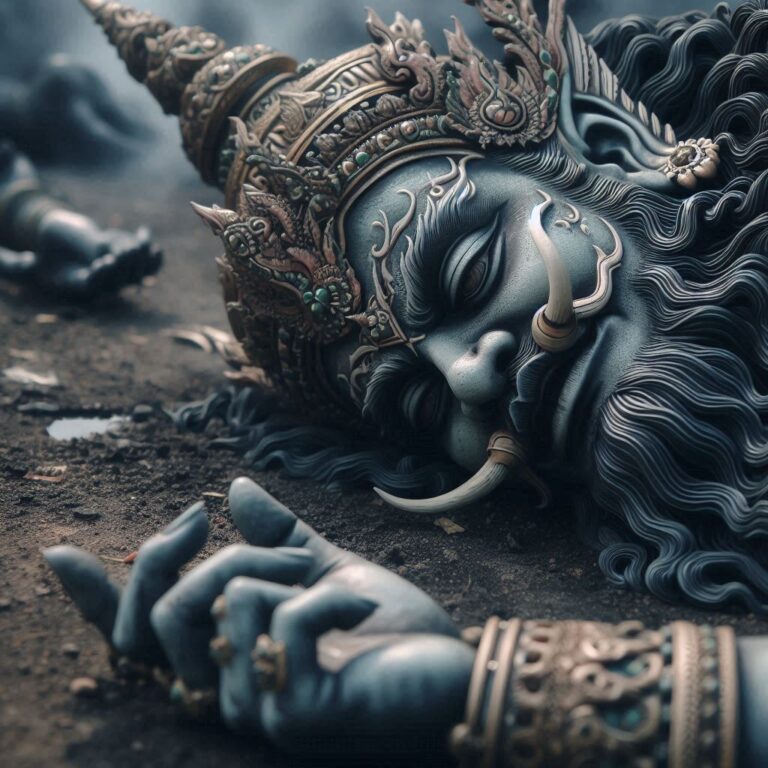Exploring Sugriva and Vali’s Complex Relationship in Ramayana
Sugriva and Vali: The Complex Dynamics in the Ramayana
The epic of the Ramayana isn’t just a tale of good versus evil; it’s a tapestry woven with nuanced relationships, heartfelt emotions, and deep philosophical insights. One of the most intriguing dynamics lies between Sugriva, the monkey king, and Vali, his brother. Their relationship is a balance of affection, betrayal, rivalry, and redemption, giving us valuable lessons about life, loyalty, and the truth of our hearts. So, let’s embark on this journey to explore the complexities of Sugriva and Vali’s relationship—a tale that is as compelling as it is instructive.
The Brothers: Sugriva and Vali
To truly appreciate the dynamics between Sugriva and Vali, we need to understand who they are. Vali, the elder brother, is portrayed as a powerful warrior with formidable strength. He possesses unique abilities, such as the power to absorb the strength of any opponent he defeats. On the other hand, Sugriva, though initially seen as the weaker brother, is characterized by his cleverness and resourcefulness.
Their relationship begins as one of affection and brotherly love, but it quickly spirals into conflict, raising questions about loyalty, power, and justice. What exactly happened to turn these once-close siblings into archenemies?
The Conflict Begins
The tale of their conflict has roots deeply embedded in the story of love and jealousy. Vali had seized Sugriva’s kingdom, casting him aside. Why? All because of a misunderstanding involving a woman named Tara, who was Vali’s wife. This act might seem trivial, but it unleashed an avalanche of consequences. Sugriva’s quest to reclaim his honor and kingdom became a driving force in the narrative.
In our relationships, misunderstandings are common, and they can lead to abrupt fractures. Just think about how often friendships falter over miscommunications. In the same vein, Sugriva’s plight resonates with us. His struggle was not just for a kingdom; it was a battle for dignity.
The Role of Rama
Enter Rama, the hero of the Ramayana! His character is one of righteousness, virtue, and honor. When he meets Sugriva, he learns of the betrayal Sugriva has faced. Here’s where the dynamics start to shift. Rama promises Sugriva that if he helps him rescue his wife Sita from Ravana, he will assist Sugriva in regaining his lost kingdom.
Isn’t it fascinating how external circumstances can transform relationships? Rama’s arrival is like a lightning bolt, illuminating the darkness of Sugriva’s despair. By siding with Sugriva, Rama becomes an ally, weaving a new fabric in the tale—one that fosters camaraderie over rivalry.
Sugriva’s Redemption
With Rama’s friendship and support, Sugriva rallies an army of monkeys to reclaim his rightful place along with the promise of loyalty and alliance against Vali. This is where Sugriva’s resourcefulness shines. He isn’t just a weakling; instead, he embodies the spirit of resilience. As he climbs the path towards redemption, he becomes a symbol of perseverance.
This transformation reflects a fundamental truth: Sometimes, in our darkest moments, we can find our greatest strength. It’s like that feeling when you’re down and out but then discover a flicker of hope. That’s the essence of Sugriva’s journey—he embodies the triumph of the human (or monkey) spirit.
The Confrontation
The climactic encounter between Rama and Vali is not merely a battle of strength but a deeper allegory of morality. Vali, upon seeing Rama, assumes that he is under attack from the hidden archer. This reveals much about his character—prideful yet blinded by his assumptions. Sugriva’s future is in the balance, and this confrontation brings forth critical philosophical questions about righteousness and justice.
Should the warrior’s ethics override familial relations? As Vali falls, he laments his fate, revealing how complex relationships can lead to devastating consequences. His final words, “भ्रातृयादो मम माघम कर्ता” (Bhrātṛyādo mama māghama kartā) which translates to “My brother has wronged me,” reflect the heartbreaking reality of lost brotherhood.
The Aftermath
Once Vali is defeated, Sugriva claims his rightful place as king. But this triumph is bittersweet. The cost of glory often weighs heavy on one’s heart. This transition marks a significant change in Sugriva’s character—from a frightened brother to a justified ruler. It sheds light on the burdens of leadership and the sacrifices that often accompany power.
Reflections on Loyalty and Betrayal
This story enriches us with tales of loyalty and betrayal. It illustrates the principles of dharma (righteousness) and adharma (unrighteousness), represented vividly by Sugriva and Vali. Their relationship serves as a mirror reflecting our struggles with trust, love, and duty.
Isn’t it remarkable how one story can encapsulate such profound life lessons? This is what makes the Ramayana layered and relatable, even in contemporary times.
The Significance of the Narrative
The dynamics between Sugriva and Vali extend beyond just characters in a storyline; they symbolize our own inner struggles with varying shades of loyalty, power, and redemption. As Sugriva now leads the monkey kingdom, the impact of this transformative journey continues to resonate with the audience. Sugriva reminds us that strength isn’t merely about physical prowess; it lies within emotional resilience and the support of allies.
Dohas and Shlokas: Wisdom in Verses
Let’s anchor some wisdom from our ancient scholars who eloquently encapsulated profound truths through Dohas and Shlokas. Here are some eminent verses reflecting the themes of their dynamics:
-
दोहे
- “सुख पास दुरमति गुरु सुनि, हृदय गवंन हाय।”
(Sukh pās durmati guru suni, hṛday gavan hāya.)
Translation: “In happiness, heed the wise words and let your heart be guided.”
- “सुख पास दुरमति गुरु सुनि, हृदय गवंन हाय।”
-
श्लोक
- “सुखदुःख समं कृत्वा, निःश्वासं चेतना प्रियम्।”
(Sukhaduḥkha samaṁ kṛtvā, niḥśvāsaṁ cetanā priyam.)
Translation: “Treat happiness and sorrow alike, and cherish those who care.”
- “सुखदुःख समं कृत्वा, निःश्वासं चेतना प्रियम्।”
-
दोहे
- “भाई मुझे न समझे यार, स्वहित में बढ़े बुरा व्यवहार।”
(Bhai mujhe na samjhe yār, svahit meṅ baḍhe burā vyavahār.)
Translation: “When a brother fails to understand, it leads to a behavior that harms us.”
-
श्लोक
- “कर्मण्येवाधिकारस्ते मा फलेषु कदाचन।”
(Karmaṇyevādhikāraste mā phaleṣu kadācana.)
Translation: “You have the right to perform your duty, but never to the fruits of those actions.”
- “कर्मण्येवाधिकारस्ते मा फलेषु कदाचन।”
-
दोहे
- “एक न सिपाही, न गणी राज, प्रेम बिन किमने सुख राज।”
(Ek na sipāhī, na gaṇī rāj, prem bin kimane sukh rāj.)
Translation: “A soldier or a ruler without love cannot know the joy of true leadership.”
- “एक न सिपाही, न गणी राज, प्रेम बिन किमने सुख राज।”
Conclusion
In conclusion, the relationship between Sugriva and Vali in the Ramayana is a multifaceted tale of conflict, redemption, and moral dilemmas. Through their journey, we learn that loyalty is not just about standing by someone despite their wrongdoings; it’s also about integrity and righteousness. It’s a vivid reminder that our relationships, however strained, deserve introspection and understanding. After all, life’s complexities often emerge in the interplay of human emotions, revealing the profound depth of our bonds.
So, the next time you find yourself in a tough spot with loved ones, remember Sugriva and Vali’s tale. It’s not only a lesson in regret but also one of hope, where every end can lead to a new beginning.
FAQs
-
What is the primary conflict between Sugriva and Vali?
- The main conflict stems from Vali’s usurpation of Sugriva’s kingdom and misunderstanding related to Tara.
-
How does Rama influence Sugriva’s fate?
- Rama becomes Sugriva’s ally, promising to help him reclaim his kingdom in exchange for Sugriva’s assistance in rescuing Sita.
-
What themes can be learned from Sugriva and Vali’s story?
- Themes of loyalty, redemption, the complexities of relationships, and moral dilemmas emerge greatly from their narrative.
-
How does Sugriva’s character change throughout the story?
- Sugriva evolves from a fearful brother into a resourceful king, showcasing the theme of resilience and strength.
-
What do the Dohas and Shlokas convey in this context?
- The verses emphasize wisdom, the nature of true leadership, the importance of love and understanding, and the essence of fulfilling one’s duty without attachment to the results.
Feel the emotions, contemplate the lessons, and engage with the timeless wisdom that the Ramayana offers us through the lives of Sugriva and Vali!







